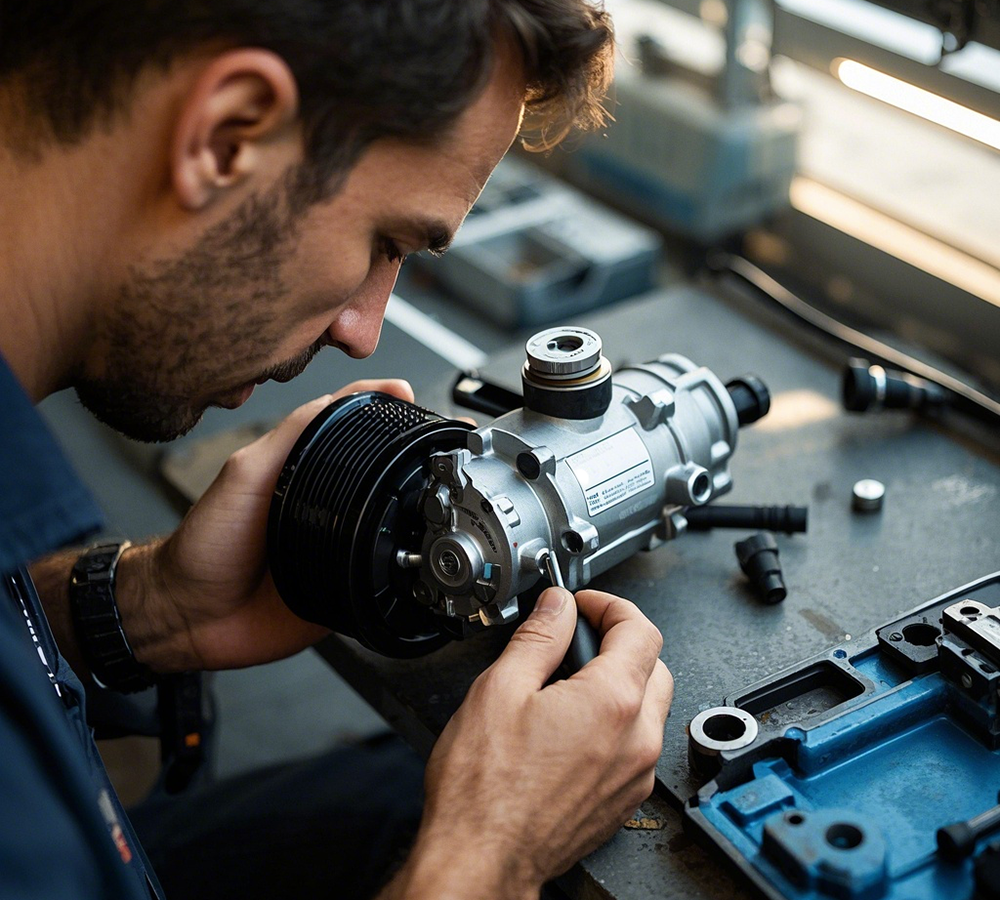New Automotive Air Conditioning Compressor Control Valve – Engineered for OEM Efficiency and Reliability Guangzhou Tang Pei Trading Co., Ltd. The Challenge: Inefficient Cooling and High Failure Rates in Automotive AC Systems Modern vehicles de...

New Automotive Air Conditioning Compressor Control Valve – Engineered for OEM Efficiency and Reliability
Guangzhou Tang Pei Trading Co., Ltd.
Modern vehicles demand air conditioning systems that balance comfort, energy efficiency, and durability. However, poorly designed compressor control valves often lead to:
Reduced Cooling Performance: Inconsistent refrigerant flow, causing uneven cabin temperatures.
Increased Energy Consumption: Compressor overcycling due to valve lag, draining vehicle battery life.
Premature Compressor Failures: 40% of AC system breakdowns traced to valve malfunctions (source: SAE International).
A major Southeast Asian ride-hailing fleet reported a 25% downtime rate in its Toyota Hilux and Honda CR-V fleets during peak summer months, linked to faulty OEM-spec control valves.
Designed to meet strict OEM specifications, our AC Compressor Control Valve (Part #TP-ACCV-OEM01) redefines reliability and efficiency:
Precision Flow Control:
Dynamic refrigerant modulation with ±2% accuracy, ensuring rapid cabin cooling.
Adaptive algorithms adjust to ambient temperatures (range: -30°C to +85°C).
Durability Engineered:
Corrosion-resistant stainless steel body with PTFE seals, compatible with R-1234yf refrigerant.
Vibration-tested to withstand 15G shocks, ideal for off-road and commercial vehicles.
Seamless Integration:
Direct replacement for OEM valves in Toyota, Honda, Nissan, and Hyundai models (2018–2024).
Plug-and-play design with CAN-BUS communication support, eliminating recalibration.
100% tested under 500,000 cycle endurance simulations (equivalent to 10 years of service).
Certified to IATF 16949, ISO 14001, and RoHS standards.
After adopting Tang Pei’s control valves, the ride-hailing fleet achieved:
30% Faster Cooling: Cabin temperature reached 22°C within 3 minutes (vs. 4.5 minutes previously).
18% Energy Savings: Reduced compressor load extended hybrid vehicle battery life by 8%.